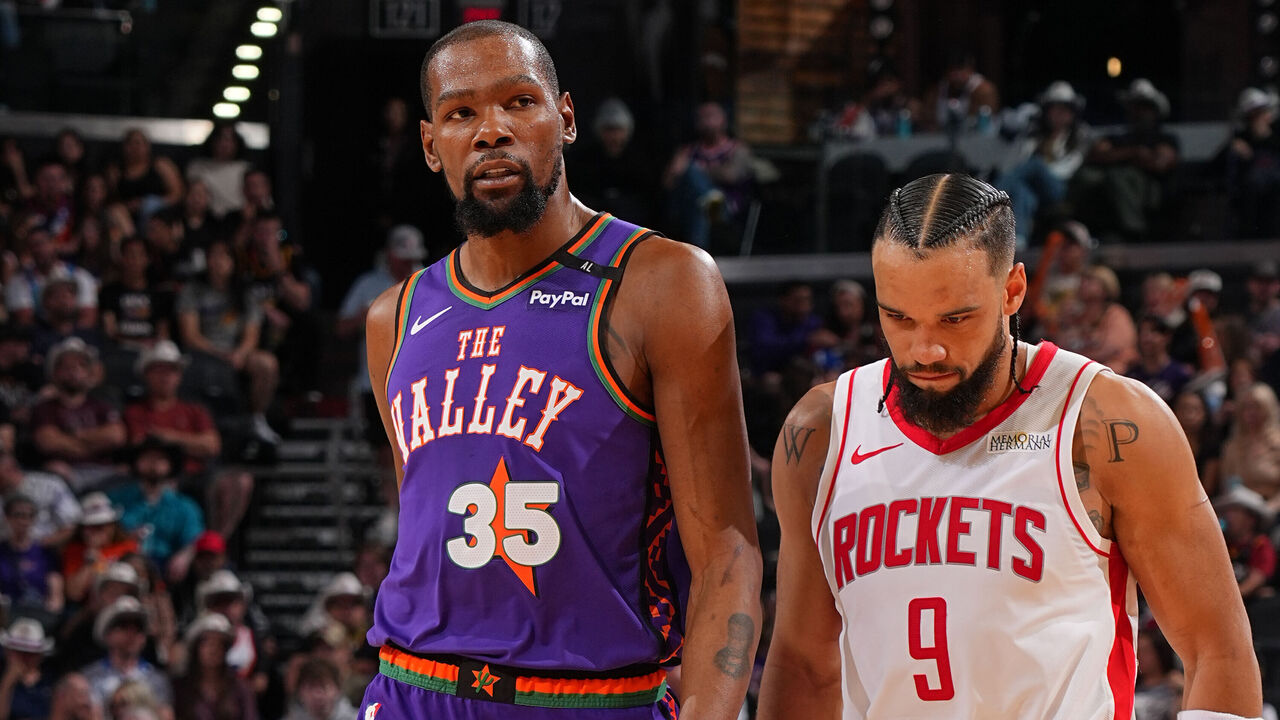Welcome to the NBA's new era of hope: Who's next to dream big?
It wasn't that long ago in the NBA - less than the length of a max contract - that it felt like teams outside of attractive markets were doomed.
In the summer of 2019, Kawhi Leonard and Paul George teamed up on the Los Angeles Clippers, Kevin Durant and Kyrie Irving signed as free agents with the Brooklyn Nets, Anthony Davis forced his way to join LeBron James on the Los Angeles Lakers, and Russell Westbrook landed alongside James Harden in Houston.
Worry spread across the league as stars clustered in glamour markets, raising concerns about what it meant for everyone else. What hope did a franchise in New Orleans or Oklahoma City have if all the superstars were going to end up playing together in big cities?
Fast-forward a few years, and the NBA has ushered in a new era of hope. Not only are the Oklahoma City Thunder the new champions after defeating the fellow small-market Indiana Pacers in the Finals, but seemingly everyone is swinging for the fences. A major driver of the shift is the league's new collective bargaining agreement, which makes it exceedingly difficult for any team to carry multiple superstars on its books without incurring significant luxury tax penalties. As a result, even prized assets are available for the right price.
Durant has now been traded twice since joining the Brooklyn Nets - first to Phoenix and then to Houston. L.A. eventually moved Davis for Luka Doncic. Harden, Jimmy Butler, Paul George, Damian Lillard: the list of All-NBA guys shipped elsewhere keeps growing. Perhaps most significantly, the Boston Celtics, fresh off a championship with a roster built through the draft and shrewd trades, just moved two key players, Jrue Holiday and Kristaps Porzingis, to reset their salary structure. While Jayson Tatum's injury in the playoffs factored into the decision to blow it up, the Celtics were likely dismantling the title-winning roster regardless. With a looming $200-million tax bill and the roster-building limitations tied to the CBA's dreaded second salary apron, major changes felt inevitable in Boston.
All this points to an environment in which any team could reasonably imagine that it's just a move or two away from becoming a playoff threat. The Rockets were a good, young squad that lacked a true primary scorer. Now, they've added Durant without giving up all that much to acquire him.

Wednesday night's NBA draft offered a glimpse of the new optimism as the New Orleans Pelicans aggressively moved up to take Derik Queen out of Maryland. Was it a rash decision for a club that won just 21 games last season and has one of the league's biggest enigmas in Zion Williamson? Quite possibly. But maybe the Pelicans are positioning themselves to be ready when another team decides to part ways with a valuable piece who could quickly remake the club.
Whether all this movement will ultimately be good for the NBA in the long run remains to be seen. In trying to make it more difficult for teams to hoard stars on bloated payrolls, the league has also made it tougher for franchises to hold on to the players they drafted once those players reach their maximum contract status. How long will Oklahoma City - a squad carefully assembled in a market that had no chance of luring a superstar - be able to keep its fantastic roster together? Two more seasons? Possibly even less if the front office decides to make moves before being forced into uncomfortable decisions. This likely isn't what the league (or the players' union) envisioned when crafting the CBA's punitive salary aprons: small-market teams that struggle to attract free agents now forced to trade homegrown talent.
But it undeniably creates new paths to relevance for franchises that once seemed far off from playoff contention. Sometimes, teams will have to shop players they'd rather keep, as the Celtics just did. And sometimes, those players will even be superstars, like Durant in Phoenix, where the club had no easy way out of salary-apron jail.
For most of the NBA's modern history, there have been two primary ways to acquire a franchise-altering talent: the draft or free agency. For many teams, that second option was always a tough sell, which is why tanking has become so popular. However, there's a third way to obtain one of those key pieces now: wait to see what shakes loose when a successful club inevitably runs into salary-cap trouble.
The NBA created this world. It's chaotic and messy, to be sure. But it gives almost everyone hope. Even, evidently, the Pelicans.
Scott Stinson is a contributing writer for theScore.